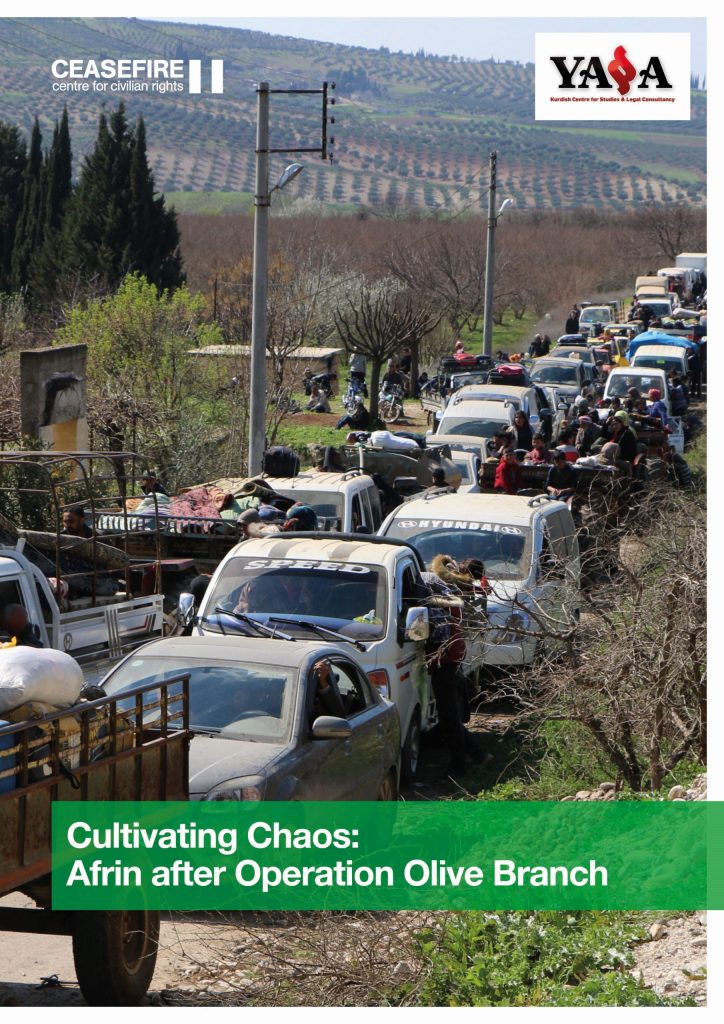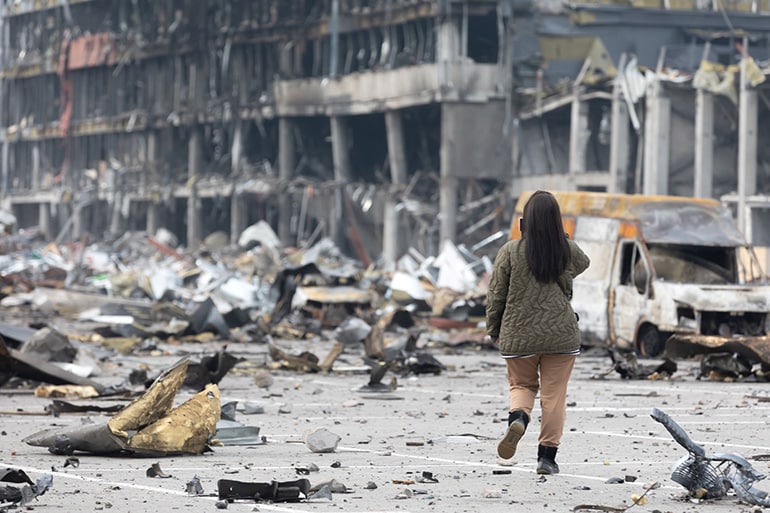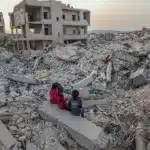July 2020
Turkey’s occupation of Afrin in northwestern Syria is causing permanent changes to the demographic character of the area, according to a new report by the Ceasefire Centre for Civilian Rights and YASA e.V. – Kurdish Centre for Studies & Legal Consultancy.
The report, entitled Cultivating Chaos: Afrin after Operation Olive Branch, is based on more than 120 interviews conducted with individuals from Afrin since the area fell under Turkish control over two years ago, documenting violations including killings, arbitrary detention, torture, sexual violence, pillage, and attacks on livelihoods.
Turkey’s occupation of Afrin in northwestern Syria is causing permanent changes to the demographic character of the area, according to a new report by the Ceasefire Centre for Civilian Rights and YASA e.V. – Kurdish Centre for Studies & Legal Consultancy.
The report, entitled Cultivating Chaos: Afrin after Operation Olive Branch, is based on more than 120 interviews conducted with individuals from Afrin since the area fell under Turkish control over two years ago, documenting violations including killings, arbitrary detention, torture, sexual violence, pillage, and attacks on livelihoods.
Turkey’s military advance into the area, code-named Operation Olive Branch, culminated in the capture of Afrin city on 18 March 2018 and caused the mass displacement of its Kurdish-majority population.
The invasion was spearheaded by Turkish armed forces, bolstered by tens of thousands of Arab and Turkmen fighters organized under the umbrella of the Syrian National Army (SNA). Despite their name, the factions take direct orders from Turkey, which also trains them and pays their salaries, according to the report.
Since the invasion, Turkey has handed direct control of Afrin’s districts and villages to the factions. The consequences for the local population have been disastrous.
‘Civilians who remain in occupied Afrin live in constant fear of the factions,’ says Miriam Puttick, Head of Middle East and North Africa Programmes at Ceasefire. ‘They know that they can be accused of collaboration with Kurdish parties, detained, tortured, or even killed at any time.’
The presence of the factions is continuing to drive displacement and acts as a barrier to the return of Afrin’s Kurdish-majority population, the report finds. Meanwhile, thousands of families from other parts of Syria have been resettled into empty houses belonging to local residents.
These processes, far from being a secondary effect of the military operation, appear to have been one of its central goals, the report argues.
‘The existence of the Kurds in Afrin is in serious danger,’ says Jian Badrakhan, Legal Consultant at YASA. ‘From over 95% at the Turkish occupation, they are estimated to be under 40% now.’
Turkish authorities appear to be permanently cementing these changes through the introduction of a new identification card system that obscures civil registry data pertaining to family origins, making it impossible to distinguish between local residents, internally displaced persons and refugees. These developments are jeopardizing the possibility of future processes of return and reconciliation in the area.
Alongside these demographic changes, Turkish forces and allied fighters have also carried out widespread attacks on the region’s religious and cultural landscape. These have included numerous instances of damage or destruction of Kurdish cultural and religious symbols, Alevi and Yazidi shrines, and historical and archaeological sites.
‘Under Turkish occupation, Afrin’s history and culture is being erased,’ adds Badrakhan. ‘The very peaceful coexistence of different religious groups in Afrin is almost destroyed.’
Note for editors:
Cultivating Chaos: Afrin after Operation Olive Branch is published by the Ceasefire Centre for Civilian Rights and YASA e.V. – Kurdish Centre for Studies & Legal Consultancy on 28 July 2020. This report was written on the basis of 120 interviews carried out with individuals from Afrin between November 2018 and February 2020, which were documented using the Ceasefire-MENA online reporting tool.
For further information or to arrange interviews, e-mail: contact@ceasefire.org























